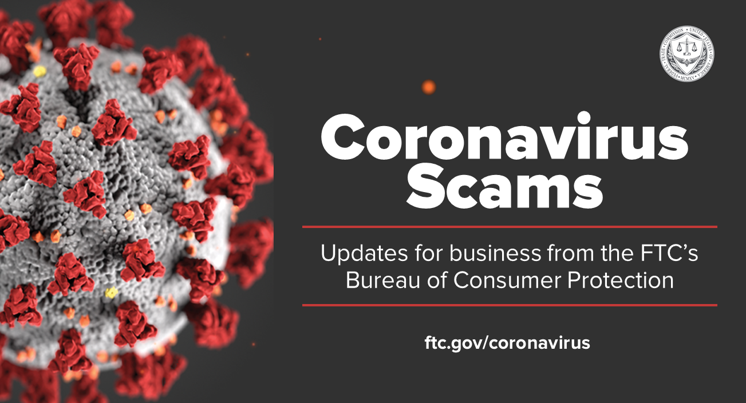As a business owner, you’ve seen the headlines about financial relief that may be available to some companies through the Small Business Administration (SBA). But you’ve also heard about scammers who extract a grain of truth from the news and distort it in an effort to cheat small businesses. Now more than ever it’s critical for small business owners to go straight to the source for accurate information about what’s happening at the SBA. And that source, of course, is the Small Business Administration’s dedicated page, sba.gov/coronavirus.
The SBA’s Coronavirus Small Business Guidance & Loan Resources page offers the latest information about the Paycheck Protection Program, Economic Injury Disaster Loans and Loan Advances, SBA Debt Relief, and SBA Express Bridge Loans. Yes, there are legitimate business groups and financial institutions sharing information, too. But given the number of fraudsters out to make a quick buck with bogus websites and phony email, your safest bet it to go straight to the SBA by carefully typing the URL sba.gov/coronavirus into the address bar at the top of your browser.
Here are more tips to help you avoid scams targeting small businesses.
 Scammers often mimic the look and feel of legitimate email. You’ve been warning your employees for years about email phishing attempts. Fraudsters have upped their game in response. They’ve been known to copy logos of financial institutions and government agencies, including the SBA, and use wording that sounds familiar. They also manipulate email addresses so that a message looks to be from a legitimate source – but isn’t. That’s why it’s dangerous to respond to those emails. Instead go directly to the SBA site.
Scammers often mimic the look and feel of legitimate email. You’ve been warning your employees for years about email phishing attempts. Fraudsters have upped their game in response. They’ve been known to copy logos of financial institutions and government agencies, including the SBA, and use wording that sounds familiar. They also manipulate email addresses so that a message looks to be from a legitimate source – but isn’t. That’s why it’s dangerous to respond to those emails. Instead go directly to the SBA site.- Don't click on links. Say you get an email that says it’s from your bank or a government agency. Don’t click on any links. It could load malware onto your computer. If you think you may need to respond, pick up the phone and call the office directly, but don’t use a number listed in the email. That could be fake, too. Instead, search online for a genuine telephone number or call your banker using the number you’ve always used. Yes, now is a good time to keep in close contact with your financial institution, but employ the same established lines of communication you used before COVID-19 became a concern.
- Be suspicious of unsolicited phone calls. Some scammers may try the personal approach by calling you and impersonating someone from a financial institution or government agency. Don’t engage in conversation. If you think you may need to respond, call using a number you know is legit.
- Watch out for application scams. Some small businesses report they’ve received unsolicited calls or email from people claiming to have an inside track to expedite financial relief. The people contacting them may charge upfront fees or ask for sensitive financial information – account numbers, tax IDs, Social Security numbers, and the like. Don’t take the bait. It’s a scam. Applying for a loan was a step-by-step process before the Coronavirus crisis and it’s a step-by-step process now. That’s why the SBA’s sba.gov/coronavirus site is the safest place for you to start.
- Alert your employees to Coronavirus relief check scams. Most people have read the news about Coronavirus relief checks that many Americans may receive. The FTC Consumer Blog has advice about spotting relief check scams. Share the tips with your staffers, family, and social networks.
If you spot a potential Coronavirus-related scam, report it to the FTC at ftc.gov/complaint.
